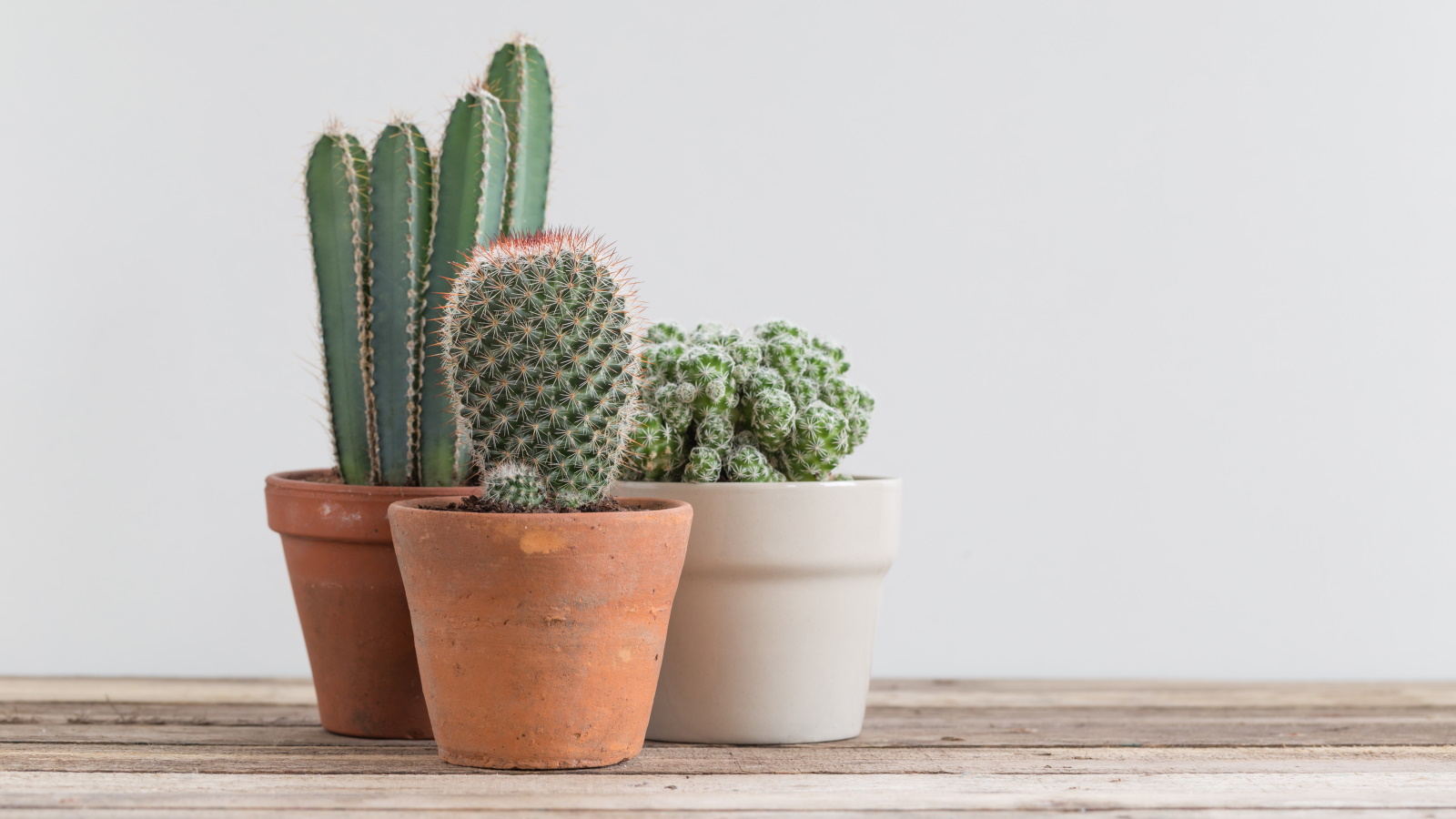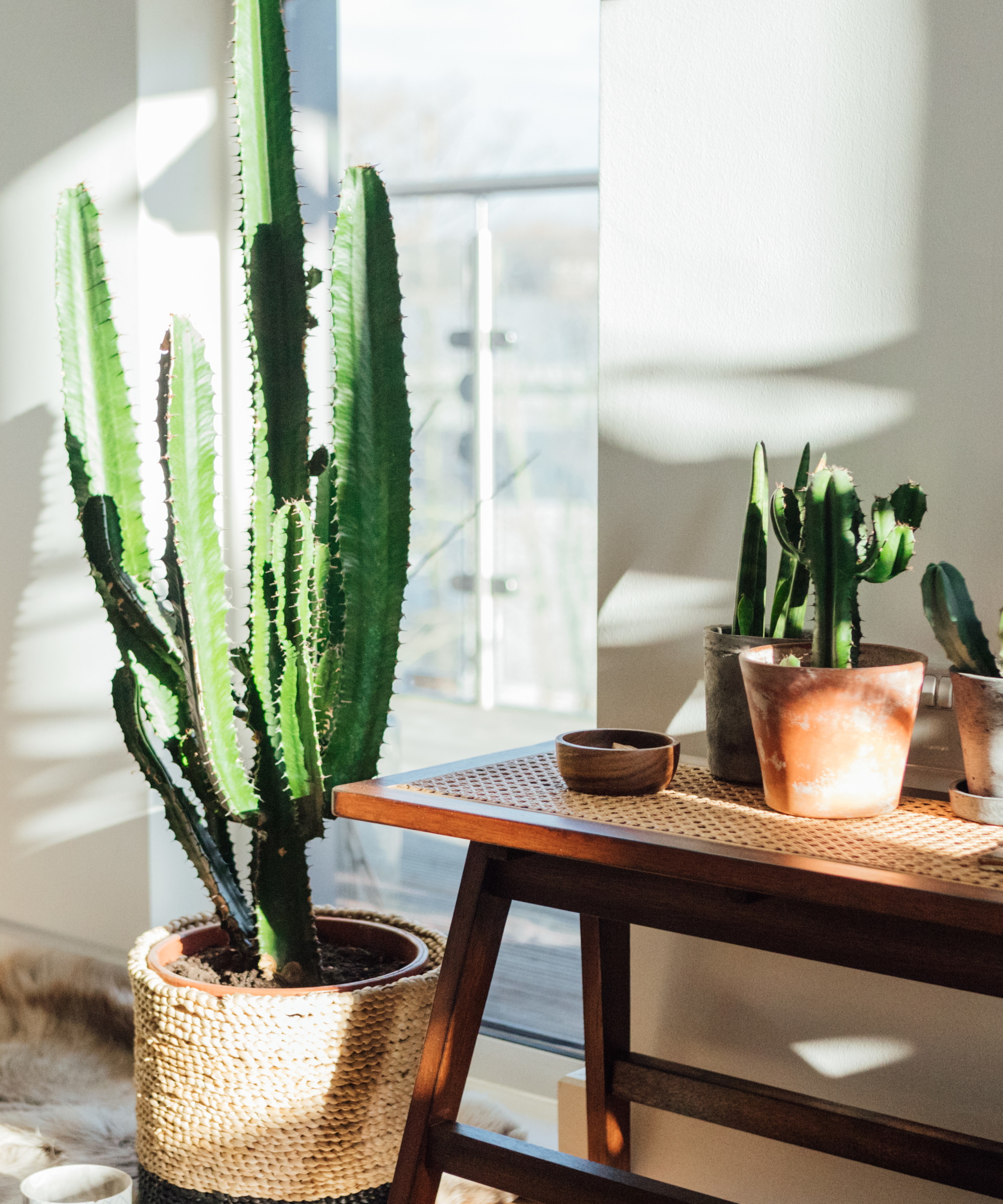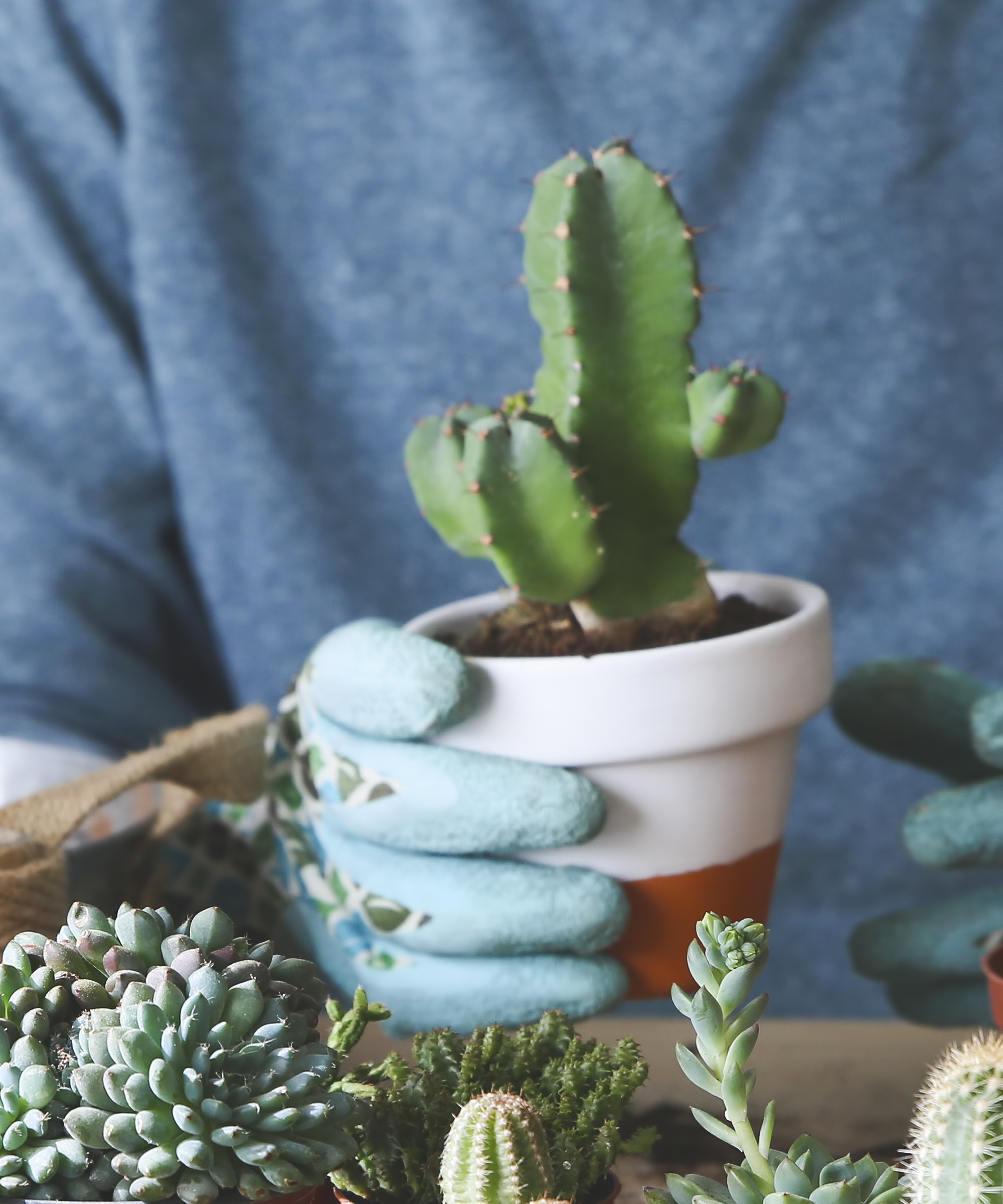How to care for a cactus – 3 expert tips for these prickly indoor plants
Cacti are fun and quirky houseplants that are easy to look after – explore our care guide to make sure you're keeping this prickly plant happy


Design expertise in your inbox – from inspiring decorating ideas and beautiful celebrity homes to practical gardening advice and shopping round-ups.
You are now subscribed
Your newsletter sign-up was successful
Want to add more newsletters?

Twice a week
Homes&Gardens
The ultimate interior design resource from the world's leading experts - discover inspiring decorating ideas, color scheming know-how, garden inspiration and shopping expertise.

Once a week
In The Loop from Next In Design
Members of the Next in Design Circle will receive In the Loop, our weekly email filled with trade news, names to know and spotlight moments. Together we’re building a brighter design future.

Twice a week
Cucina
Whether you’re passionate about hosting exquisite dinners, experimenting with culinary trends, or perfecting your kitchen's design with timeless elegance and innovative functionality, this newsletter is here to inspire
If you're a fan of more unique houseplants, there's no doubt you'll own a few cacti.
One of the best indoor plants, there are so many wonderful varieties of cacti, all of which can grow into truly unusual shapes; helping to enhance your home with a more characterful natural accent.
While it's important to research your specific type of cactus to ensure it is properly cared for, there are a few easy rules that can be followed for most cacti varieties.
How to care for a cactus

Although the majority of cacti are native to North and South American deserts, cacti can be found around the world in warm and dry environments. They are now one of the most popular houseplants to have in the home, loved for their interesting appearance and colorful blooms.
Learn from the experts on how best to keep this prickly plant in pristine condition.
1. Provide lots of sunlight

It goes without saying that cactus plants need lots of sunlight. They are often native to deserts where they are exposed to the sun for the whole day, so it's important to provide your houseplant with plenty of bright, natural light.
'Cacti prefer direct sunlight, eight or more hours of direct sunlight daily is optimal. The more light your cactus gets, the more it will photosynthesize. This will boost its growth and keep it healthy and more resilient to diseases and pests,' says Vladan Nikolic, houseplant expert and founder of Mr Houseplant.
Design expertise in your inbox – from inspiring decorating ideas and beautiful celebrity homes to practical gardening advice and shopping round-ups.
You might notice your cactus start to grow unruly towards the light if it is not receiving enough light in its current position. The color of your cactus may also start to fade if it doesn't have sufficient light.
A sunny windowsill, such as south-facing window, is the ideal home for your cactus to ensure it receives plenty of exposure to sunlight throughout the day.
However, if you notice your cactus turning brown, this may be because it's receiving too much sunlight – we explore other factors in our dedicated feature.
2. Water well in warm weather

Knowing how to water houseplants is an art that takes some time to master, and overwatering is often one of the most common indoor mistakes houseplant owners make, especially with plants like cacti.
'Watering is key, but hold off on the daily downpour. They're desert dwellers, they thrive on occasional deep soakings, then likes to dry out completely before its next drink,' says plant expert and CEO of Tree Menders, Evan Torchio.
Choosing to soak your plant is a good way to water a cactus to ensure it isn't being overwatered. It allows the plant to soak up only the amount of moisture it needs.
Alternatively, check the soil is dry all the way down the container. 'The easiest way to do this is to use a chopstick. Stick the chopstick inside the container, push it to the bottom, and pull it out. If it comes out dry, with no soil sticking to it, it’s time to water the plant,' says Vladan.
Overwatering your cactus may lead to houseplant root rot and a mushy, dying plant. You can also use a moisture meter, like this plant moisture meter from Amazon.
3. Use well-draining potting mix

No matter what type of cactus you have, ensure it is in a well-draining potting mix. Cacti retain moisture well, as their thin needle leaves reduce the amount of water they transpire. It's therefore important to provide them with a potting mix that drains well so that your cactus isn't sitting in waterlogged soil with moisture it isn't soaking up, leading to oversaturation and root rot.
'You can buy ready-to-go potting mix for succulents and cacti, or you can make your own mix by mixing one part of any store-bought potting mix with one part of perlite, pumice, or coarse sand,' says Vladan.
Cacti potting mix is widely available on the market, such as this succulent and cactus soil from Perfect Plants Nursery. It can likewise be a good idea to home your cactus in a well-draining pot, like this planter with drainage holes on Amazon.
We explore how to report a cactus in our separate piece.
FAQs
How do you make a cactus flower?
Many types of cacti produce eye-catching, unique blooms that are often in vibrant shades of red, purple, yellow, and more.
Blooming will depend on the cacti species, so it's important to do research around your specific plant. Generally speaking, you should provide optimal conditions, taking into consideration lighting, temperature and watering needs. Failing to do so may cause your cactus flower buds to drop off.
If you're looking for a colorful cactus variety, we explore how to grow Easter cactus in our dedicated feature.
Can you propagate a cactus?
You propagate and grow cactus plants from cuttings. This is the easiest method to multiply your cacti collection from your existing plants.
Many cacti will produce offsets which are like baby plants. You can cut these off using clean tools and plant them in soil. Provide plenty of warmth, light, and water and your cutting will start to develop roots and grow into an established cactus.
Depending on how fast your variety of cactus takes to grow, you can expect to have a new plant within a few weeks.
Cacti are fun houseplants that every plant enthusiast should have in their collection. They have quirky appearances and grow into all sorts of unusual shapes.
If you're looking for another cactus with bright blooms, you should consider a Christmas cactus, this variety produces pink and red blooms during the winter holiday season. For a different succulent, consider how to grow lithops, for an unusual and striking indoor plant.

Tenielle is a Gardens Content Editor at Homes & Gardens. She holds a qualification in MA Magazine Journalism and has over six years of journalistic experience. Before coming to Homes & Gardens, Tenielle was in the editorial department at the Royal Horticultural Society and worked on The Garden magazine. As our in-house houseplant expert, Tenielle writes on a range of solutions to houseplant problems, as well as other 'how to' guides, inspiring garden projects, and the latest gardening news. When she isn't writing, Tenielle can be found propagating her ever-growing collection of indoor plants, helping others overcome common houseplant pests and diseases, volunteering at a local gardening club, and attending gardening workshops, like a composting masterclass.